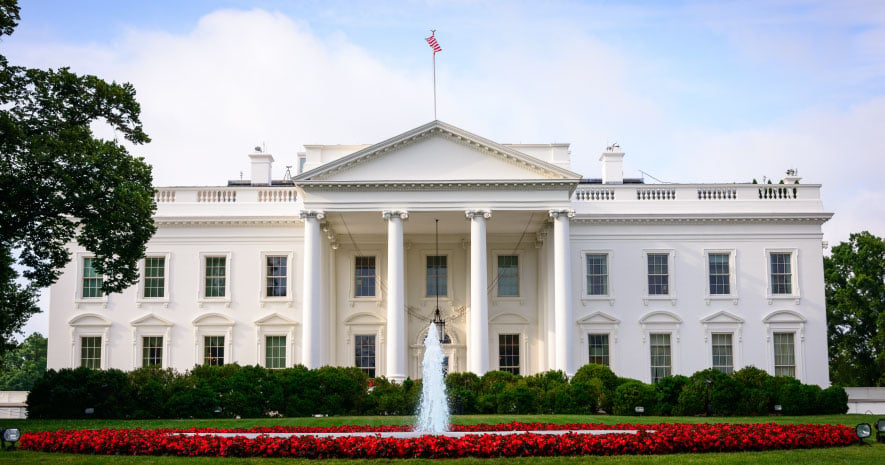A Closer Look at Key Policies and Implications
Written by Randall Weaver, CPA
As Donald Trump prepares for a second term, his pro-business stance, especially toward real estate, is rekindling interest among investors. Key areas of Trump’s agenda — from tax policy changes to incentives for business investments — will likely impact markets and taxpayers alike. Trump's proposals emphasize tax cuts, deregulation, and investor-friendly policies, which could bring both opportunities and challenges for real estate professionals.
In this article, we’ll explore key aspects of Trump’s proposed tax policies and what they could mean for real estate investors in the future.
Real Estate Investments and Economic Momentum
-
Investor Sentiment and Real Estate Gains: Trump’s policies historically favor business and property investments, and industry experts anticipate that a pro-business agenda will invigorate smart capital in the real estate sector.
-
Interest Rate Expectations: With rising anticipation that the Federal Reserve might shift toward rate cuts (which they did again by a quarter point on November 7), the landscape for real estate financing could see significant changes. Lower rates would encourage borrowing and expand investment, especially in commercial properties.
Trump’s Proposed Tax Agenda for 2025
- Making the 2017 Tax Cuts Permanent: Trump’s first term saw the enactment of the Tax Cuts and Jobs Act (TCJA), a historic overhaul that is set to expire for individual taxpayers in 2025. Trump’s platform emphasizes making these cuts permanent to avoid tax hikes for middle-income earners.
- 100% Bonus Depreciation Extension – Positive impact for Cost Segregations studies: For real estate investors, the TCJA expanded bonus depreciation eligibility to include both new and used properties. Trump’s commitment to restoring 100% bonus depreciation beyond 2022 would incentivize real estate development and upgrades.
- Reduced Regulations on Development and Property Use: Trump has emphasized reducing regulations on businesses, which could extend to development and environmental regulations affecting real estate. A reduction in regulations could make it easier for developers to obtain permits, reduce project timelines, and lower the costs associated with new developments.
- Extension and Enhancement of Opportunity Zones: During his previous administration, Trump signed the Tax Cuts and Jobs Act of 2017, which introduced Opportunity Zones—a program aimed at revitalizing economically distressed communities by offering tax incentives for long-term investments. Trump has expressed interest in expanding this program, potentially adding new areas and extending tax benefits to incentivize further development.
- Possible Repeal or Reduction of Capital Gains Tax Increases: In recent years, there has been talk of increasing capital gains taxes for high earners, which would significantly impact real estate investors who rely on asset appreciation for returns. Trump, however, has voiced support for maintaining or even reducing capital gains taxes, which could benefit real estate investors looking to buy and sell properties.
- Preservation of 1031 Like-Kind Exchanges: The 1031 exchange has been a cornerstone of real estate investing for decades, allowing investors to defer taxes on property sales as long as they reinvest the proceeds in similar property. Trump has previously expressed support for maintaining this program, which many real estate professionals see as essential for growth and investment.
- Qualified Business Income Deduction: Trump has historically advocated for lowering taxes on businesses, which would likely benefit real estate investors by extending the popular Qualified Business Income deduction enacted through the TCJA.
- Potential for Unlimited SALT Deduction Restoration: The SALT deduction cap, set at $10,000 in the TCJA, limited the ability of taxpayers in high-tax states to write off state and local taxes. Trump has proposed restoring this deduction without limits, which could provide significant relief to high-income taxpayers.
- Increased Tariffs: Trump’s proposed 10-20% universal baseline tariff on imports, alongside an even higher tariff on Chinese imports, would cause imported materials (and related renovation projects) to be more expensive in coming years, reducing potential cash flows and benefits of renovation projects.
- Expanded Estate Tax Benefits for Wealth Preservation: Trump's proposal to make the TCJA’s estate tax cuts permanent would eliminate potential future tax hikes on estates, making it easier for high-net-worth individuals, including real estate investors, to pass on wealth to future generations. Estate taxes often force liquidations to cover tax liabilities, so this proposal could enable investors to retain assets within families.
Potential Obstacles and Legislative Challenges
- Congressional Influence and the Filibuster: While the White House sets the tone, tax law is fundamentally shaped by Congress, with complex negotiations on both sides of the aisle. Trump’s proposed extensions or expansions of the TCJA would need bipartisan support unless pushed through by reconciliation.
- Budget Implications: The TCJA was projected to increase the federal deficit, and extending its provisions without offsets might add even more pressure on the national debt. Congressional leaders face a significant task in balancing fiscal discipline with growth incentives.
Conclusion
With Trump’s return to office, real estate investors may see a range of favorable policies, including lower taxes on capital gains and income, expanded opportunity zones, and maintained 1031 exchanges. These potential changes underscore the importance of proactive tax planning and strategic investment decisions, enabling investors to make the most of a shifting regulatory landscape. As details of these policies emerge, real estate investors have much to gain from careful tax planning and consultation with their advisors to maximize benefits.
About the Author
Randall Weaver, CPA
Randall joined Trout CPA in 2011. He graduated from Millersville University with a Bachelor of Science degree in Business Administration (magna cum laude) in 2006. Randall has over 19 years of accounting experience. He currently serves on the firm's Construction and Real Estate, Manufacturing and Estate & Trust Practice Groups. As a Partner, Randall manages all aspects of tax planning and preparation and business consulting for some of the firm's significant clients. Randall enjoys activities with his family, being involved with his church, and rooting for Philadelphia sports teams. He lives in Lancaster County with his wife and two children.





